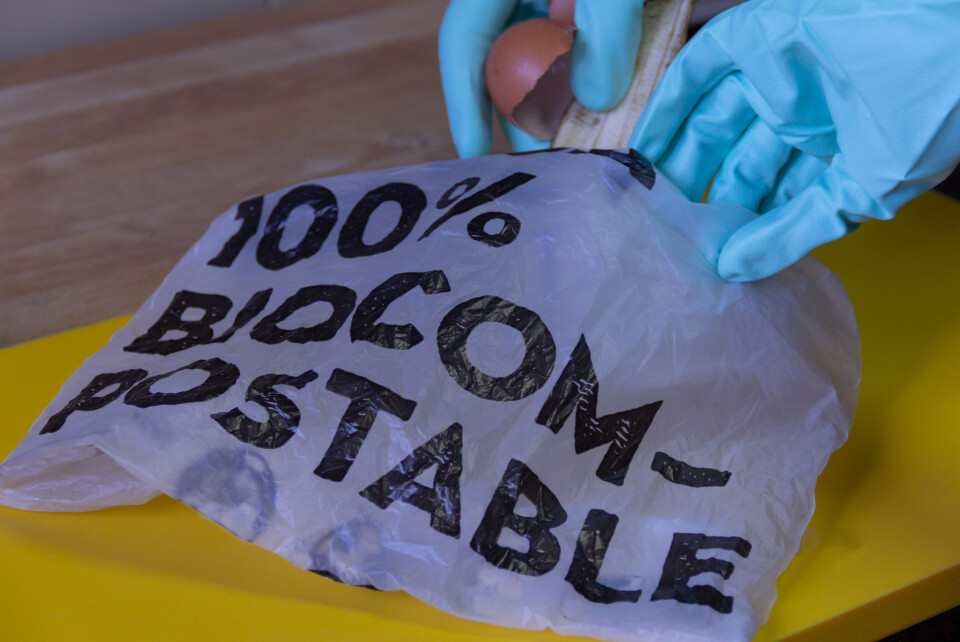-
Pistes closed, confinement orders: Alpine resorts deal with avalanche risk
Increased snowfall this weekend may cause further closures as busy school holiday season continues
-
Former French Interior Minister announces 2027 presidential candidacy
Bruno Retailleau recently asked prefectures to be tough on immigration
-
Ryanair axes Dublin-Rodez route but London connection retained
“We are disappointed but had no say in decision” say airport authorities
‘Biodegradable’ plastic should not go in compost bins in France
Even ‘biodegradable’ or ‘compostable’ plastic does not fully decompose and poses a danger to public health, says French health agency

Do not put your plastic bags or packaging in the compost, even those labelled ‘biodegradable’ or ‘compostable’, says the French food health and safety agency.
The National Agency for Food, Environmental and Occupational Health Safety (Anses) has discovered that the bags are far from completely recyclable as their total decomposition "is not guaranteed," and as such they represent a health hazard.
More than one in three French people recycle their food waste in domestic compostors or collective municipal brown dustbins. But in addition to food waste, such as vegetable peelings, coffee grounds and tea bags, many have been adding plastic, including allegedly biodegradable bags.
These can take up to 12 months to break down, and that is only if the conditions are exactly right and represent a “serious potential danger” to public health, Anses’ Stéphane Lecont said.
Peter Reinhardt, who helps deal with Paris’s waste, finds evidence of lots of plastic in the capital’s compostors. "It's a sticky material. It partially decomposes, but does not really decompose. So for us, it's not an easy thing to manage.”
The waste disposal officials now recommend that no plastic material be placed in domestic and collective compostors and that industrial sites should be used instead.
The agency also recommends reviewing the regulations governing composting. It should "prohibit any reference or incitement to put plastic materials in a domestic compost" and review the standards surrounding biodegradability with more stringent criteria.
The Anses agency was asked in February 2020 to produce a report by the government’s risk prevention agency, to assist in the fight against waste. It was asked specifically to look into the impact of biosourced plastics, biodegradable and compostable throughout their life cycle.
This same law will make it mandatory from January 1, 2024 to compost food waste, by composting it oneself in gardens or kitchens, in dedicated bins, or by bringing it to collection points made available in public spaces.
Related articles
Old clothes turned into home insulation and sold in French DIY shops
France to launch grants for people to repair home electronic goods
























